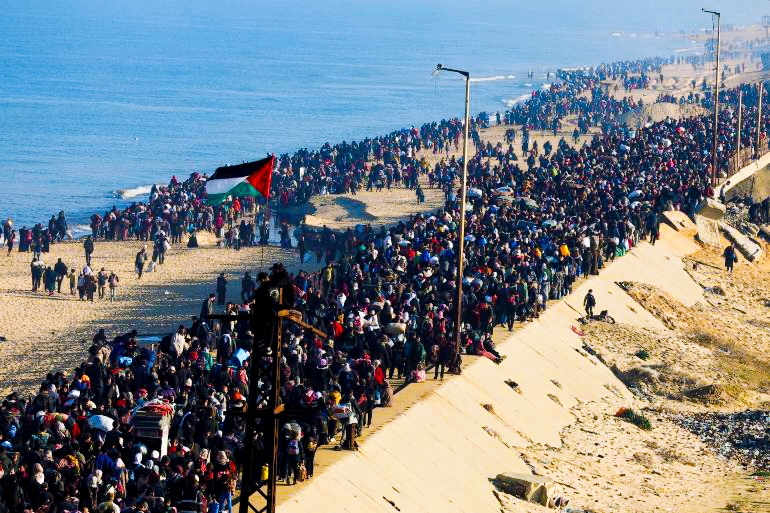The Government of South Sudan confirmed yesterday, Saturday, its categorical denial of the validity of reports circulating about its readiness to receive Palestinians displaced from the Gaza Strip, describing those reports as "unofficial and not reflecting the state's position."
It emphasized its principled rejection of forced displacement as a violation of international law and human rights.
In a special statement, Stephen Lual Ngor, a member of the Foreign Relations Committee in the National Parliament of South Sudan, said, "What is being circulated about an agreement to receive Palestinians from Gaza is inaccurate, and no official statement has been issued by the government in this regard."
Ngor added that "South Sudan is a sovereign state and does not succumb to any external pressures, despite its strategic relations with the United States and Israel, which are based on mutual respect and common interests."
For his part, Atem Garang, a member of the National Parliament, stated that "the government has clearly articulated its position that it rejects the forced displacement of Palestinians, considering these practices morally and humanely unacceptable."
Media reports had sparked widespread controversy after Reuters reported from unnamed sources that Israel and South Sudan were conducting talks about a potential agreement aimed at transferring Palestinians from Gaza to Juba.
According to those sources, the agreement has not yet been finalized, but consultations are still ongoing.
These claims were reinforced by a report published by the British newspaper "Telegraph" last Thursday, which alleged that the Government of South Sudan agreed to receive Palestinian refugees from Gaza in response to an Israeli request.
According to the report, an official in the South Sudan Ministry of Foreign Affairs confirmed his country's approval, while the counterpart included "lifting U.S. sanctions on Juba and Israeli investments in the health and education sectors."
In this context, the Israeli Deputy Foreign Minister recently visited South Sudan, and the government announced that the visit aimed to enhance bilateral relations, during which a memorandum of understanding was signed to support joint development efforts.
Juba confirmed that the meeting did not address any issues related to the deportation of Palestinians from Gaza.
These developments come amid rising Israeli statements regarding what is called "voluntary migration" of Palestinians from the Gaza Strip, which are plans announced by Israeli Prime Minister Benjamin Netanyahu and several of his ministers as a "proposed option" to resolve the crisis in the sector.
U.S. President Donald Trump had previously hinted at the idea of transferring Gaza's residents to other countries, which sparked widespread criticism on the Arab and international levels.
These proposals are met with comprehensive Arab rejection, as Arab countries repeatedly affirm their commitment to the full right of return for Palestinians to their lands, whether in the homeland or the diaspora, and their rejection of any attempts to reshape the Palestinian demographic structure through displacement or resettlement outside the occupied land.
Thus, South Sudan has put an end to the raised speculations, reaffirming its commitment to international law, standing by humanitarian values, and renewing its categorical rejection of any role in forced displacement projects affecting the Palestinian people.

